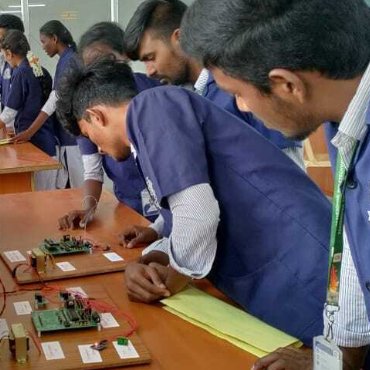For PLUS MAX Paavendhar Polytechnic College, the Electronics and Communication Engineering (ECE) program would likely focus on providing students with a strong foundation in electronic circuits, communication systems, signal processing, and other related areas. Here's what you might expect from the ECE program at PLUS MAX Paavendhar Polytechnic College:
- Core Courses: Students would take courses in fundamental electronics, digital electronics, analog and digital communication, microprocessors, and integrated circuits. These courses provide the theoretical background necessary for understanding electronic devices and communication systems.
- Laboratory Work: Practical experience is crucial in ECE. Students would likely spend time in laboratories conducting experiments related to electronic circuits, communication systems, and signal processing. This hands-on experience helps reinforce theoretical concepts and develops practical skills.
- Project Work: Many ECE programs include a project component where students work on real-world problems or design projects related to electronics and communication. This allows students to apply their knowledge and creativity to solve problems and gain valuable project management skills.
- Industry Exposure: PLUS MAX Paavendhar Polytechnic College may organize industrial visits, internships, or guest lectures by professionals from the industry to give students insights into the practical applications of ECE concepts and to help them understand industry trends and practices.
- Elective Courses: In later semesters, students might have the option to choose elective courses based on their interests or career goals. These could include topics such as wireless communication, embedded systems, VLSI design, or optical communication.
- Soft Skills Development: Alongside technical education, emphasis may also be placed on developing soft skills such as communication, teamwork, and problem-solving, which are essential for success in the workplace

STAFF DETAILS
| S.NO | NAME | QUALIFICATION | DESIGNATION |
|---|---|---|---|
| 1 | S.CHINNAMANI | B.E | HEAD OF DEPARTMENT |
| 2 | M.NATHIYA | M.E | LECTURER |